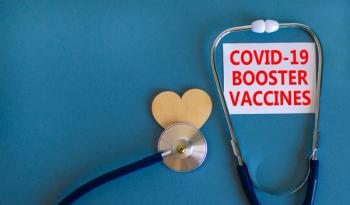
Children, Adolescents Are Just as at Risk for Long COVID as Adults
Children and young adults can experience post-acute or long COVID-19 symptoms just as adults can.
Children and young adults can experience post-acute or long COVID-19 symptoms just the same as adults do, according to a
The CDC said people with long COVID conditions can have a wide range of symptoms that can last more than four weeks or even months after infection. Sometimes the symptoms can even go away or come back again.
Some of the reoccuring symptoms can include fatigue or fever, issues with the respiratory or heart system, neurological symptoms and more.
All folks can experience these symptoms 90 days or more after their initial infection, however, children and young adults have fewer deaths or severe outcomes from COVID-19 infections than adults.
Conducted by researchers from the Technical University of Dresden, Germany, they used data from almost half (46%) of the German population to determine that kids and adults have the same relative risk of experiencing post-COVID symptoms.
The research was performed because data on long COVID-19 is still limited, particularly for children and adolescents.
The cohort study included 11,950 children and young adults, and 145,184 adults who received a diagnosis from the virus before.
Data from German health insurance organizations were collected on patients between January 1, 2019 and December 31, 2020. The base population included all individuals insured for at least 1 day in 2020.
The study was based on medical records of those with COVID-19 infections confirmed by polymerase chain reaction (PCR) testing in all of 2020. The authors compared the occurrence of pre-specified diagnoses, entered into the medical record at least 3 months post-infection, in COVID-19 patients to a control group of more than 750,000 people the same age, sex and pre-existing medical conditions, without PCR-confirmed COVID-19.
Of the children and adolescents, 67% were younger than 12 and the adults were 18 or older.
Kids and teens with COVID-19 were 30% more likely than the controlled group to have documented health problems 3 months or more after their COVID-19 infection than COVID-negative
Adults with COVID-19, by comparison, were 33% more likely than the controlled group to have health problems in the same timeframe.
It's recommended by researchers controlled population-based studies with extended follow-up and further in-depth analyses are required to confirm results among children and young adults.
Newsletter
Get the latest industry news, event updates, and more from Managed healthcare Executive.























